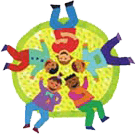Autism Spectrum
Children with ASD need to be provided a predictable pattern or framework in order for them to feel competent.
A modern therapy for Autism Spectrum Disorders (ASD) integrates an understanding of the neurological, information-processing deficits with a relationship-based, developmental model.
In the process of remediation, as children become more integrated and develop a sense of self, they are able to problem-solve everyday issues and actively participate and navigate the social world of relationships.
Neurological impairments associated with ASD may interfere with the early signaling system of relating, communicating, in regards to basic needs met, experience sharing and the forming of a relationship. The intersubjective relationship is a critical foundation between a parent and child that allows them to move along the developmental pathway and it might remediate core deficits. The forming of the dyadic relationship is the crucible in which the parent becomes the facilitative guide to open the gateway for the growth of the child’s emotional regulation, social, cognitive, communicative and functioning.
Atypical behaviors presented in a child with ASD might include difficulties in their ability to relate, communicate and regulate their behaviors. Children may lack motivation to engage in affective relationships or purposely persist with curiosity. They may have never learned how to socially reference others faces for pleasure or for information to resolve uncertainty. They may not actively seek out others to share in meaningful moments or join in pleasurable experiences. They may also have difficulty verbalizing their feelings and organizing their thoughts to communicate their intent. They tend to play with toys in an isolated or in a stereotypic manner. A child may tend to be more preoccupied and may have sensory processing difficulties (visual, auditory, tactile, motor planning, etc.) which could deter them from engaging in novel or challenging experiences. These can be increasingly challenging symptoms that cause a child to avoid or over-react and respond indifferently to their social world.
